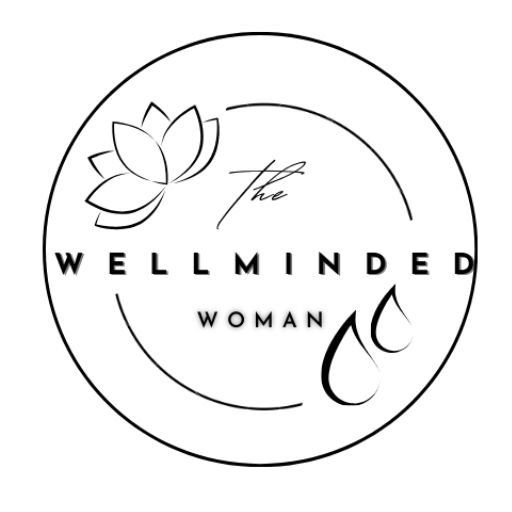

Do you wake up feeling tired no matter how much you sleep? Is your calendar an endless list of tasks and to-do items, many of which bring you little actual joy and fulfillment? If you are starting to feel this way or have for some time, you may be suffering from burnout. The term “burnout” is defined as a “state of complete mental, physical and emotional exhaustion caused by overwork and stress”.
Physical Symptoms of Burnout:
- Headaches
- Fatigue/sleep issues
- Stomachace/GI issues
- Frequent illness
- Changes in appetite
- Struggling with hygiene/grooming
Emotional Signs of Burnout:
- Feelings of Hopelessness or Helplessness
- Cynicism or loss of compassion (where you previously had some)
- Feeling like a failure, excessive thoughts of self-doubt
- Feeling detached/withdrawn
- Loss of motivation
- Lowered tolerance or patience for others (kids, loved ones, etc)
You may be asking yourself; how did I get here? It Is not simply just from working long hours at a job (although that is part of it) it is a combination of chronic stress, pressure from society and others and the demands or responsibilities on your life. Contributing factors may be overly demanding job, spouse or family members who need/require your assistance, lack of recognition at work or in the home, chaotic work or home environment to name a few. Other factors such as not having support (physical help or emotional support) in the home or at work to accomplish tasks and not getting enough sleep may also contribute to burnout.

Left unchecked burnout can lead to increase use of substances (to cope/escape feelings of burnout) issues in relationships, loss of productivity at work and even a mental or physical breakdown that requires a leave of absence from your job. Our minds and bodies work together so stress and overwhelm not only impact our mind it deteriorates our bodies. High levels of the stress hormones cortisol and adrenaline are linked to various negative health outcomes such as high blood pressure, sleep issues, improper nutrient absorption and heart issues. Unless we learn to rest and replenish ourselves, we will be destined for early death and an unfulfilling life. So how do we fix it?
First of all, examine your situation. What are the causes in your life? Once you establish what the causes are assess where you can take control to reduce demands or lessen pressure where you are able. Some examples: Are you able to delegate work to a coworker on your team or say “no” to the extra project your boss asked you about? Can you re-organize your schedule to ensure more productivity? Sometimes when an overdemanding job is the main culprit of your burnout you may just have to leave for your own sanity. This was the case for me when I was a foster care social worker. Large caseloads and unrealistic expectations of work output combined with far commutes, low pay and unpaid overtime lead to me ultimately leaving a job I actually did find fulfilling at one point. The organization did not make the position sustainable for a person who wanted to preserve their physical and mental health.
RED FLAG ALERT: It should not be a normal part of your work day to sob in your office or in your car before/after your work day. (yes, social workers I am speaking to you!)
Other examples of areas you can make modifications to preserve your sanity is SAYING NO to people who are always placing demands on you. All my people pleasers out there please hear this: we all have a capacity within ourselves and you do not need to serve others at the detriment of your own well-being by pouring from an empty cup!
Pro-Tip: Practice saying no ahead of time in front of the mirror or with a trusted friend or therapist when you know you will interact with people who are always asking too much from you. RESIST the urge to say yes due to fear of rejection or abandonment. It was quite freeing when I realized abandonment from the wrong kind of friends is actually a blessing! If you only loved me for what I can do for you, you never truly loved me.
I am a recovering “people-pleaser” and used to struggle with this constantly, often times it is tied to a person’s sense of self-worth being correlated to feeling ‘needed by others. Dr. Saundra Dalton-Smith wrote it perfectly “I feel I am nothing, if I’m doing nothing. My worth is wrapped tightly around my endless activity”. She is a doctor, wife and mother so of course people needed her, but she realized all those demands as noble as they are were destroying her. Dr. Dalton-Smith’s the began to research burnout and wrote a book on how to overcome it with “rest”. She highlights ways to overcome the addiction of “doing” by learning to sit still and restore our sense of self and learn to “rest” in 7 key areas to lead a more fulfilling life.

In her book Sacred Rest Dr. Dalton-Smith talks about how rest is not just ‘absence of activity” it is the practice of doing things that produce restoration and replenishment, which sometimes include just ‘being’ still. This can be especially hard for those of us with trauma. I will be doing a separate blog post soon on that topic of how to be still while healing from trauma.
Here are the 7 Types of Rest we all need:
- Physical rest: which can be both active and passive. Restorative physical activities that are active are things like exercise, stretching, yoga, massage therapy, etc. Passive physical rest is sleeping and making sure you are getting enough of it.
- Mental rest: Having quietness of the mind not flittering from one thought to the next or keeping multiple tabs open in your mind at once, but being present in the moment. Try anchoring your thoughts to the activity you are trying to stay present for. For example, reading a book with my daughter if I am thinking about planning work for the next day, I am not even enjoying that moment with her, which will soon be gone. Instead focusing my attention on each word and engage with her in that experience. Your kids will feel the difference and so will you.
- Sensory Rest: Taking a break intentionally from all the sensory input we face on the daily basis. Something as simple as turning the background noises down in your life. Putting your phone on do not disturb, curbing your screen time all together. Sitting in silence for a few minutes before transitioning from one sensory overloading space to another can be so helpful to just give your brain/body a space to breathe and regulate with out constant stimulation.
- Creative rest: Allowing yourself to appreciate the beauty of something and admire creative expression. This can be staring at a mountain landscape or listening to a beautifully orchestrated song or just lovingly noticing how the trees colors change in Fall and paint our world in a splash of color. It gives rest to our souls (which are creative by nature) because the power of “awe” is healing especially on days we are tired of looking at the same desk and computer screen. To remember there is a colorful vast world out there replenishes our spirit.
- Emotional rest: The restorative practice of venting your emotions in an authentic way to a trusted loved one or therapist/coach where you can be completely vulnerable and raw. This provides a release for bottled up negative emotions and feels comforting to be heard.
- Social rest: This is where you surround yourself with people who pour into you rather than take from you. Friends/family members who encourage you or just spend time with you without “needing” something from you.
- Spiritual rest: This is the practice of resting in God’s presence whether that is through prayer, reading your Bible, worship music or attending church. For those who do not consider themselves to have faith/religion it is also the practice of finding belonging and wholeness in this greater universe. Such as doing activities that make you feel connected to the world we live in such as volunteering or supporting a cause that is meaningful to you. These kinds of activities are rejuvenating to a weary spirit.
Not sure what kind of rest you are lacking in? Take Dr. Dalton-Smith’s rest deficit quiz here to learn more: https://www.restquiz.com/quiz/rest-quiz-test/
The more you “rest” while you are awake the better you will rest when you are sleeping, which will improve your overall wellness. Soon you will realize simply by prioritizing rest that you will work better, love better and live better.

Slowdown in this fast-paced world and remember that part of living, is just “being”. That is truly where we learn who we are and what things really matter to us. We were not created to only do, but to be. In taking steps to restore yourself mind, body and spirit you will find you are more productive, purposeful and happy. Prepare yourself for backlash when you set boundaries at work and in your relationships. Our society and people who profit from our burned out work habits will glamorize being a workaholic and disparage you for saying no and taking rest, but your mind and body will be grateful that you did.
Stay well, stay watered.
~Cosmi




Leave a Reply